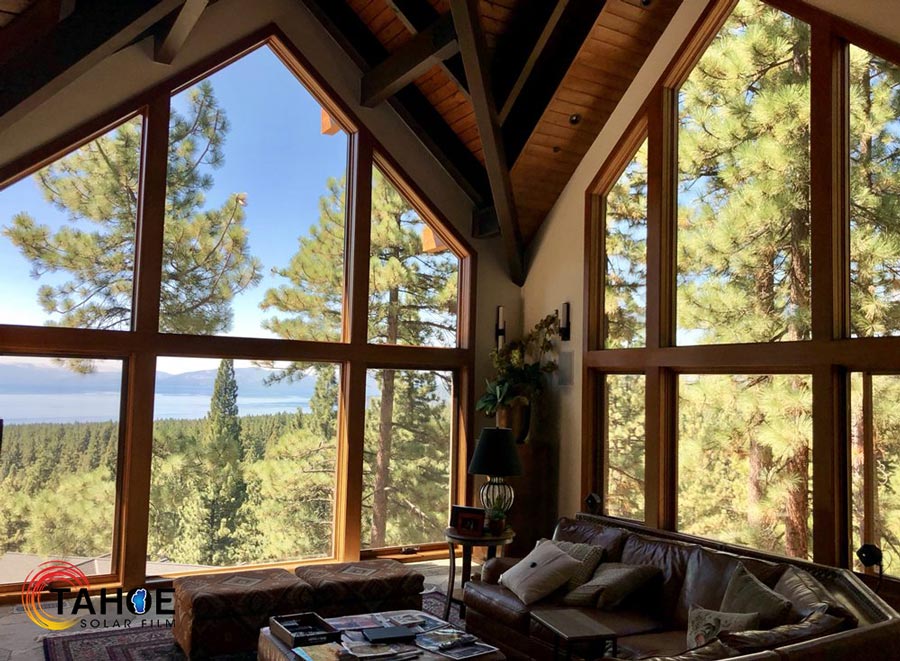Window tinting is a popular home upgrade in California, offering benefits like enhanced privacy, UV protection, and energy efficiency. However, before you install window tinting, it’s important to understand the laws that regulate its use in the state. California has specific regulations about window tinting that differ from those applied to vehicles, and these laws exist to ensure safety, aesthetics, and legal compliance. In this guide, we’ll walk you through the essential things you need to know about home window tinting laws in California.
1. Window Tinting Laws for Homes vs. Vehicles
First, it’s important to distinguish between laws for vehicles and laws for residential properties. California’s vehicle window tinting regulations are stricter than those for homes. Vehicle tint laws are designed with road safety in mind, ensuring that drivers can maintain clear visibility. Residential window tinting laws, however, are more focused on aesthetic concerns, light transmission, and energy efficiency.
While vehicle tinting laws have clear restrictions on the darkness of the tint, window tinting for homes is more flexible. California does not impose strict limitations on the darkness or reflectivity of window tinting for residential properties. However, there are still some important factors to consider, especially in regard to how your window tinting affects your home’s energy performance, light, and privacy.
2. Legal Considerations for Home Window Tinting
Although there are fewer regulations for home window tinting compared to vehicle tinting, there are still guidelines that homeowners should follow to ensure their tinting complies with local building codes and regulations.
Key Considerations:
- Light Transmission: While California doesn’t set specific limits on how dark your home window tint can be, it’s important that the film allows enough light into your home for natural daylight. This ensures that your space remains bright, airy, and functional while still benefiting from the glare reduction and UV protection that window tinting provides.
- Reflectivity: If you’re considering using a highly reflective film, be aware that it might impact the aesthetics of your neighborhood. Excessive reflectivity may also be subject to aesthetic guidelines or local homeowner association (HOA) rules, particularly in residential communities with specific design standards.
- Aesthetic Considerations: Local municipalities or homeowner associations may have specific aesthetic rules about what is and isn’t allowed. For instance, if you live in a historical district or a community with strict architectural guidelines, you might face restrictions on certain types of window films. It’s always a good idea to check with your HOA or local zoning office before proceeding with window tinting.
3. Building Codes and Energy Efficiency
Window tinting in California is often associated with improving energy efficiency. Many homeowners opt for tinting to reduce solar heat gain in the summer and improve insulation during the winter. California’s Title 24 Building Standards, which aim to reduce energy consumption, encourage home improvements that enhance energy efficiency. While Title 24 doesn’t set specific standards for residential window tinting, using tint films with energy-efficient properties, such as heat rejection and UV blocking, can contribute to your home’s energy performance and may even qualify for certain rebates or incentives.
4. Window Tinting and UV Protection
One of the primary benefits of window tinting is UV protection. California’s sunny climate means that UV radiation can be a major concern for homeowners, leading to skin damage and fading of furniture and flooring. Home window tinting that blocks up to 99% of UV rays is a great way to protect your home and family from harmful sun exposure. California doesn’t restrict residential window tinting for UV protection purposes, so you’re free to choose films that block the majority of UV rays, ensuring the comfort and safety of your home.
5. Safety and Building Codes
Although window tinting for residential properties isn’t heavily regulated in California, homeowners should still be mindful of building codes regarding safety glass. For example, if you install window tint on certain areas of your home, like doors or windows near stairs or walkways, you’ll need to ensure that the glass meets safety standards for impact resistance. In California, windows in these areas must meet specific standards to prevent injuries in case of breakage.
If you plan to use window tinting in areas of your home that involve safety concerns—such as near walkways or in areas with a high risk of breakage—it’s a good idea to consult with a professional to ensure that your chosen film complies with California’s safety standards.
6. Installation and Professional Help
While DIY window tinting is possible, professional installation is recommended for the best results. In California, a professional installer will ensure that the tint is applied correctly, with proper alignment and no air bubbles, ensuring the film lasts for years. Professional installers are also knowledgeable about the legal requirements for window tinting and can guide you on choosing the best film for your home while staying compliant with local building codes.
Professional installation ensures that the window tint will meet your desired look and performance, including reducing glare, increasing energy efficiency, and providing UV protection without violating any legal or aesthetic restrictions.
7. Homeowner Association (HOA) Rules and Local Ordinances
In some California neighborhoods, especially those with homeowner associations (HOAs), additional rules might apply to window tinting. HOAs often have strict regulations about the appearance of homes in their communities, and this includes how windows are treated. For instance, while California state law may not impose limits on the reflectivity of window tinting, an HOA might restrict reflective tints that could affect the neighborhood’s appearance or cause excessive glare.
Before installing window tint, check with your HOA or consult your neighborhood’s guidelines to ensure that your tinting choice will not violate any community standards. This step will help you avoid costly fines or the need to remove the tint after installation.
8. Conclusion
California’s laws on home window tinting are generally more relaxed than those for vehicles, but it’s still important to consider factors like energy efficiency, privacy, aesthetics, and local ordinances. Home window tinting offers a wealth of benefits, including UV protection, energy savings, and increased privacy, but it’s important to follow any regulations related to light transmission, reflectivity, and building codes to ensure your tinting project is compliant.
If you’re considering installing window tinting in your home, working with a professional installation company like Tahoe Solar Film can help ensure that you meet all legal requirements and get the most out of your window film. Be sure to check with your local authorities or HOA to confirm the guidelines for window tinting in your area, and enjoy the benefits of a more comfortable, private, and energy-efficient home.

